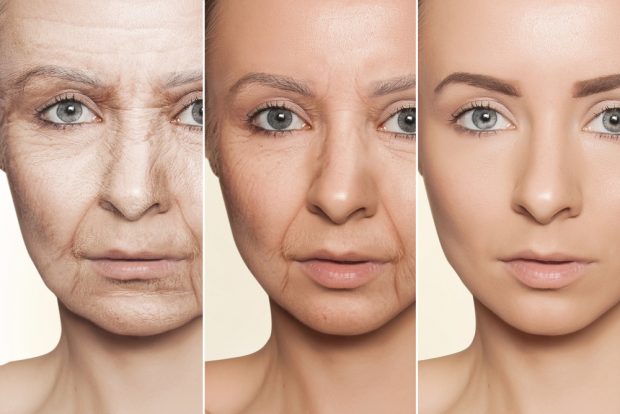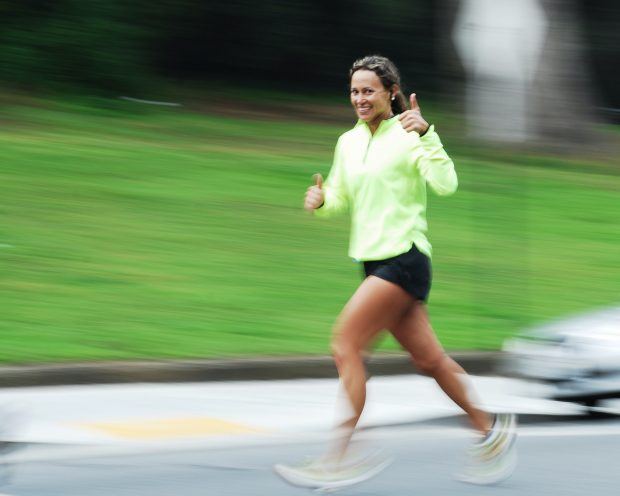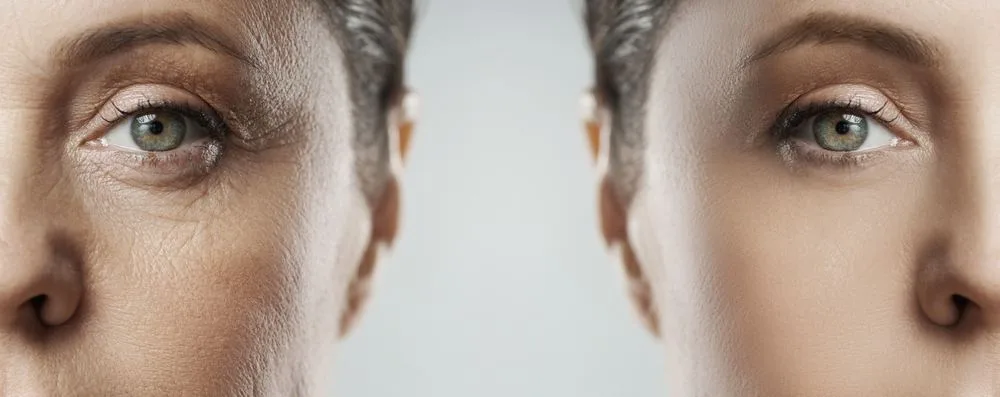For a lot of people, age is just a number and their bodies know this very well, as they routinely proclaim how they feel younger than they are. Yes, we can’t exactly stop time, but that doesn’t mean that we have to allow it to take a strain on our bodies, especially when doing so can threaten our health and longevity.
You may not be able to stop how many candles you add to your birthday cake, but the good news is that keeping your biological age low can leave you feeling much younger than you are.
Biological age vs chronological age
Yes, chronological age is a great way to keep track of how much time you’ve been on Earth, but it’s not necessarily the most accurate representation of your health. Rather, a biological age is a much better representation of your health as it represents the level at which your body functions, displaying if you’re really “young at heart and body” or letting the years get to you.
We don’t all age at the same rate, which is why some grandparents spend their afternoons running around with their grandchildren, while others would spend their time watching them play. This is because aging on a biological level can affect your health in a number of ways.
For instance, a study published in Nature Aging revealed that in a group of older adults of the same chronological age, those who were experiencing accelerated biological aging faced a higher risk of heart disease, diabetes, and cancer and have a higher rate of cognitive decline, disability, and mortality.

transurfer/shutterstock
That said, if you really want to ensure that you age well, then you need to be on top of your biological age.
What is my biological age?
It’s one thing to know how old you are based on your birth year, but figuring out your biological age isn’t as easy. If you’re really curious about your biological age, then there are various companies, as well as websites, that can help to provide a figure. The factors used to measure biological age vary, but the most common one is telomere length. Telomeres are found at the end of chromosomes, working as protective caps. They not only protect our chromosomes from damage or fusing with other chromosomes, but they’re also seen as a “biological clock.”
Now, while you may not know your biological age, there are a few signs and symptoms that can indicate that your body is aging much faster than you are. These include:
- Hair loss
- Easily bruising
- Formation of wrinkles and fine lines
- Reduced hand grip strength
- Abdominal weight gain
- Dry skin
- Poor sleep quality
- Fatigue
- Poor fitness level
How can I reverse my biological age?
1. Adopt a plant-based diet
A healthy diet can have such a great influence on your body, so much so that it even reverses the aging process.
A study published in the American Journal of Clinical Nutrition set out to determine just how well healthy eating habits can influence biological aging. According to the findings, eating a diet that includes plenty of fruits and vegetables but lower amounts of sodium and red meat was not only associated with lower biological age, but also a slower rate of aging.
Additionally, the study also noted that improving one’s eating habits could be the most effective in lowering biological age among women who don’t regular exercise, which brings us to our next point.
2. Get enough physical activity
The body is designed to move and, as research has found, adopting sedentary habits is one of the easiest ways to age it.
In one study, published in The American Journal of Epidemiology, female participants who exercised for fewer than 30 minutes per day and were sedentary for more than 10 hours had biologically older cells and shortened telomere length. Shortened telomeres have been associated with an increased risk of chronic diseases, as well as an increased risk of mortality.
So, what’s the best way to exercise if you want to rejuvenate your body’s cells? Well, researchers from Brigham Young University discovered an exercise plan that can help to preserve telomere length, reversing biological aging.

Photo by andrew dinh on Unsplash
According to the researchers, 40 minutes of jogging five days a week for men and about 30 minutes of jogging five days a week for women help preserve telomeres.
Now, while the researchers acknowledge that not a lot of people are active at those levels, they do believe that reaching that level of activity is absolutely doable, so what are you waiting for? Grab those running shoes and get going!
3. Get enough sleep
Not getting enough sleep won’t just leave you feeling irritable and fatigued the next morning, but it will also age you overnight.
Examining the sleep patterns of new mothers a year after they gave birth, a study published in Sleep Health found that new moms who slept fewer than seven hours a night at the six-month mark were three to seven years older than those who slept seven hours or more. The moms who slept less also had shorter telomeres.
If you’re struggling to get enough sleep, then we might suggest the following:
- Diffuse essential oils like lavender and bergamot in your bedroom
- Create a bedtime routine to help your mind and body unwind
- Avoid caffeine after 3pm
- Maintain your sleep times – go to bed and wake up at the same time every day
- Keep the TV out of the bedroom
- Turn away from your electronics two hours before bed.
4. Manage your stress levels
Considering the world we live in, it’s hard to escape stress. Whether it’s financial, environmental, or personal, we all get stressed now and then. However, too much of it can compromise our health and age us.
A study published last year in Translational Psychiatry proved this statement by revealing that stress does indeed accelerate biological aging. However, the same study also found that emotional regulation can help mitigate the biological aging effects of chronic stress.
BetterUp, a company dedicated to improving mental health and wellness with Prince Harry as their Chief Impact Officer, suggests the following strategies to regulate your emotions when you’re going through a stressful situation:
- Identify and reduce triggers
- Tune into physical symptoms
- Consider the story you are telling yourself
- Engage in positive self-talk
- Make a choice about how to respond
- Look for positive emotions
- Seek out a therapist
MAIN IMAGE CREDIT: BLACKDAY/Shutterstock
Want to know more?
While no sole factor is responsible for biological aging, there are a few things that speed up the process. For instance, cellular senescence has been linked to a number of issues, including inflammation and other age-related diseases such as heart disease, dementia, and cancer.
References
Carroll, J. E., Ross, K. M., Horvath, S., Okun, M., Hobel, C., Rentscher, K. E., Coussons-Read, M., & Schetter, C. D. (2021). Postpartum sleep loss and accelerated epigenetic aging. Sleep health, 7(3), 362–367. https://doi.org/10.1016/j.sleh.2021.02.002
Elliott, M. L., Caspi, A., Houts, R. M., Ambler, A., et al. (2021). Disparities in the pace of biological aging among midlife adults of the same chronological age have implications for future frailty risk and policy. Nature aging, 1(3), 295–308. https://doi.org/10.1038/s43587-021-00044-4
Harvanek, Z.M., Fogelman, N., Xu, K. et al. Psychological and biological resilience modulates the effects of stress on epigenetic aging. Transl Psychiatry 11, 601 (2021). https://doi.org/10.1038/s41398-021-01735-7
Kresovich, J. K., Park, Y. M., Keller, J. A., Sandler, D. P., & Taylor, J. A. (2022). Healthy eating patterns and epigenetic measures of biological age. The American journal of clinical nutrition, 115(1), 171–179. https://doi.org/10.1093/ajcn/nqab307
Shadyab, A. H., Macera, C. A., Shaffer, R. A., Jain, S., Gallo, L. C., LaMonte, M. J., Reiner, A. P., Kooperberg, C., Carty, C. L., Di, C., Manini, T. M., Hou, L., & LaCroix, A. Z. (2017). Associations of Accelerometer-Measured and Self-Reported Sedentary Time With Leukocyte Telomere Length in Older Women. American journal of epidemiology, 185(3), 172–184. https://doi.org/10.1093/aje/kww196





![women [longevity live]](https://longevitylive.com/wp-content/uploads/2020/01/photo-of-women-walking-down-the-street-1116984-100x100.jpg)










